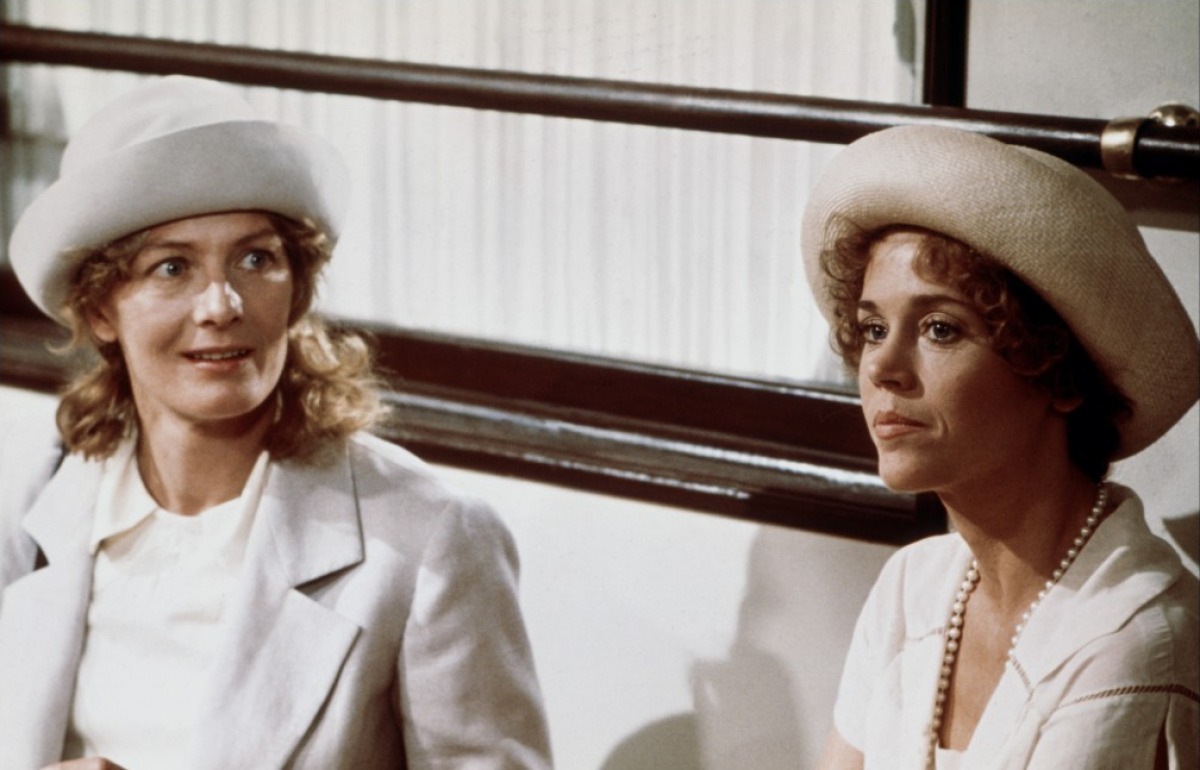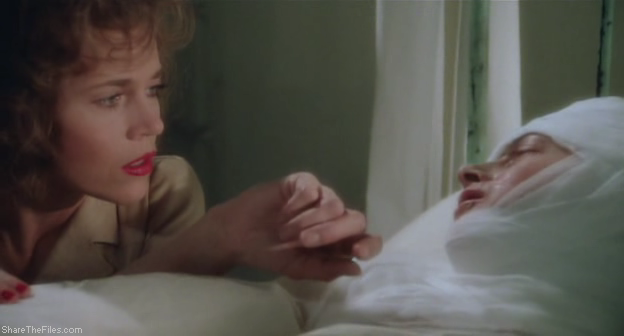Julia (1977)
50th Academy Awards 1978
1/5 Stars
Nominated for 10 awards, of which it won 2.
Nominated for Supporting Actor (Maximilian Schell), Best Actress (Jane Fonda), Cinematography (Douglas Slocombe), Costume Design (Anthea Sylbert), Directing (Fred Zinnemann), Film Editing (Walter Murch), Music-Original (Georges Delerue), and Best Picture (Richard Roth).
Won Supporting Actor (Jason Robarbs) and Writing-Screenplay based on material from another medium (Alvin Sargent).
Watched October 12, 2012.
Julia (Vanessa Redgrave) is an eccentric, intelligent activist who was tragically and fortunately born and lived in the time of Hitler. She was doomed from the beginning, and so it seems was her friend and eventual famous playwright Lillian Hellman (Jane Fonda). They had a deep, loving friendship all through their childhood until Julia went away to Oxford to study. It is here that a distance was created between them, not just in miles. Lillian reflects romantically on her memories of her friend later in life as she attempts to write her first play, holed up in a beach house with her on-again-off-again lover Dash Hammett (Jason Robards). It is the tragedy and unconditional love and devotion of Lillian’s relationship with Julia that preoccupies her writing, but also fuels her greatness. It is also this that is constantly driving her to visit Europe in hopes of tempting Julia out of hiding to spend time with her.
The movie is a mess, unfortunately. It is supposedly about Julia, but is actually more halfheartedly about Lillian. It is about their relationship, and yet we rarely see them together except for in Lillian’s romanticized memories. We very rarely see or know anything of depth about Julia, just that she is a shadow that haunts Lilly. The affection in the relationship is primarily on Lilly’s side, although Julia does eventually name her child after her friend. All that we know about Julia is that she is daring, brave, and an activist first in Vienna and then in Berlin during the rise and dominance of Hitler and Mussolini.
What should be the climax of the film is infact the worst part. On one of Lillian’s inevitable tragic visits to Europe, she is approached by a “friend” of Julia’s who asks her to help them smuggle money into Berlin. This again begs the question of who actually loves who in the relationship–Lillian who is so willing to put her life on the line for her friend, or Julia who would willingly put her friend’s life on the line for the cause? Instead of an exciting point in the film, it is slow, seemingly pointless, and unfortunately feels like padding to fill screen time.
The acting is wonderful and the imagery is good. If the film had only been about Lillian with a little bit of Dash it would have been a hit, but because it could not decide who it was really about, it fell drastically short. I enjoyed the darkness of the setting–rarely was it sunny and cheerful. I found Lillian herself very interesting, with her chain smoking, writers block, and utter transparity with her emotions. Jane Fonda did a very good job with her. Vanessa Redgrave, on the other hand, wasn’t given much to deal with in terms of Julia and therefor she did fairly well. I’m not sure why Jason Robards won supporting actor, though. Not to say that he didn’t do well, but his character didn’t feel very demanding.
All in all, I wouldn’t recommend the film. If you are looking for something about the anti-fascist movement it might be of interest to you, although again, it is almost entirely about Lillian and her memories and not very much about what was happening in Germany at the time. The writing, however, was interesting enough to possibly warrant a viewing.
Sources: Share Files, toutlecine, IMDB, Rotten Tomatoes, Roger Ebert, The Best Picture Project

